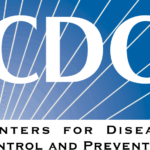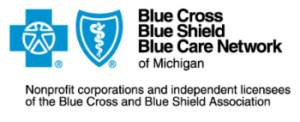In response to the global Coronavirus outbreak, officially recognized as COVID-19, Wellness Works compiled helpful and credible resources to help your organization practice safe and effective operations.
Centers for Disease Control and Prevention Resources

Encourage sick employees to stay home
-
- Employees experiencing respiratory symptoms should not come back to work until they are free of fever (100.4 degrees Fahrenheit).
Separate sick employees
-
- If employees start experiencing symptoms throughout the day, immediately separate them from others and send them home.
Emphasize respiratory etiquette and hand hygiene
-
- Post cough and sneeze etiquette and hand hygiene posters at the front entrance, in conference rooms, and in common areas.
- Provide tissues, hand sanitizer, disinfecting wipes, and no-touch trash cans throughout the workplace.
Perform routine environmental cleaning
-
- Routinely clean frequently touched surfaces including break rooms, conference rooms, workstations, and door handles.
Advise employees before traveling to take certain steps
-
- Check the CDC’s Traverler’s Health Notices for the latest guidance before leaving.
World Health Organization Resources

COVID-19 is still affecting mostly people in China with some outbreaks in other countries. Most people who become infected experience mild illness and recover, but it can be more severe for others. Take care of your health and protect others by doing the following:
-
- Wash hands frequently
- Maintain distance from anyone coughing or sneezing
- Avoid touching eyes, nose, and mouth
- Practice good respiratory hygiene (cover your coughs and sneezes)
- Seek care immediately if you have a fever, cough, and difficulty breathing
Blue Cross Blue Shield of Michigan Resources

Blue Cross Blue Shield of Michigan is waiving member copays and deductibles for COVID-19 tests, among a series of proactive steps on coronavirus. All diagnostic laboratory tests for COVID-19 when used in accordance with CDC testing recommendations will be fully covered by Blue Cross at no cost to the member. This measure will ensure patient testing and subsequent care is completed in an efficient, coordinated way with authorities at every level. Read the full article.
Henry Ford Health System Resources

Studies show that less than 5 percent of people are washing their hands properly. Here’s what you need to know about when and how you should be washing your hands.
When to wash your hands
-
- Before, during, and after preparing food
- Before eating food
- Before and after caring for someone at home who is sick with vomiting or diarrhea
- Before and after treating a cut or wound
- After using the toilet
- After changing diapers or cleaning up a child who has used the toilet
- After blowing your nose, coughing, or sneezing
- After touching an animal, animal feed, or animal waste
- After handling pet food or pet treats
- After touching garbage
How to wash your hands
-
- Wet hands with running water.
- Lather back of hands, fingers and palms with soap.
- Scrub hands for at least 20 seconds (enough time as it takes you to hum “Happy Birthday” twice”).
- Completely rinse hands under running water.
- Dry hands with clean towel or air dry them.
If you can’t wash your hands with soap and water, using alcohol-based hand sanitizer that contains at least 60 percent alcohol is recommended. Carrying a small bottle with you is a smart idea for those times you don’t have access to soap and water.
Detroit Regional Chamber Resources

The Detroit Regional Chamber created a collection of preventative measures for businesses to safeguard employee well-being and productivity in wake of Coronavirus. This collection includes employer resources, disruptions to businesses, and precautions to take when attending events.
Employers: View these recommendations and consider the following:
-
- Determine whether flex working is an option and review policies.
- Create employee communication plans for the latest information.
- Decide how to handle spikes in absenteeism – in some communities schools may be dismissed or families may need to take care of sick family members.
- Coordinate with state and local health officials so timely and accurate information can be provided.
- Make a business continuity plan and be prepared to change your practices if need to maintain critical operations.
- Encourage workplace hygiene.
Read additoinal receommendations to keep empoyes safe.
United States Chamber of Commerce Resources

With the U.S. now reporting a limited number of COVID-19 cases, it’s important that businesses of all sizes and sectors continue to monitor the situation and are as prepared as possible to protect the health of their workers. Download and utilize these resources within your organization to avoid and minimize the effects of COVID-19.